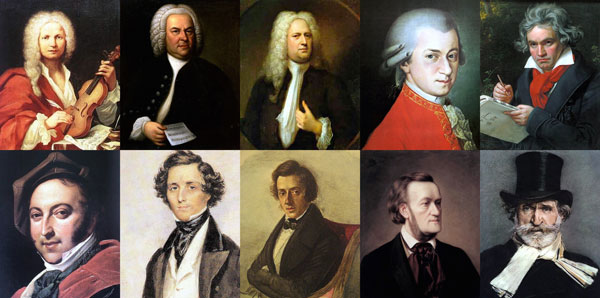I love all kinds of modern music, which includes things that have nothing to do with classical music. I listen to pop albums, rap albums, metal, jazz, and anything that with a beat that I can get my hands on. Despite stereotypes, I also harbor a deep passion for classical music, and I will here share my reasons and hopefully open some minds.
If you don’t consider yourself a fan of classical music, what comes to mind when you think of it? A rich old white guy plays a million notes as fast as his ability allows on his little violin for a few pennies? An entire orchestra sweats their skin off playing off of a sheet for hours? If classical music died a hundred years ago, and now with more access and knowledge than ever about music, why bother listen to “outdated” music? Why cook Ramen noodles over a bonfire when a perfectly working microwave sits in your kitchen?
First off, we will get over some barriers about what we will define as “classical music.” For our sake, it’s art music outside of contemporary popular styles. And for the vast majority of history, classical music means scores, music written and communicated through sheet music. Electronic classical music without scores shows up, but for our sake we will also define classical music as music shared through scores. The biggest answer to the question “Why still listen?” lies in sheet music and the interaction between composer, performer, and listener.

Think about the process of a piece. An idea, an emotion in a composers head -> A sheet of paper -> A perfomer who channels the emotions of the piece and their own soul into their instrument -> The listener. At the end of our chain, the composer’s original emotion reaches our listener. But what lies at the center of the relavance of classical music: the layers of expression. A composer will have a way to express his soul into writing. A performer will impose parts of their own self onto the material they’re playing. This beautiful dance ends in the mind of a listener who takes it in and interprets it and enjoys it in context of all of their past emotions and experiences.
When people ask for piece recommendations, and they’re not big into classical music, I always recommend Samuel Barber’s Adagio for Strings. Peaceful, sorrowing, and ethereal, Samuel Barber effectively presents his soul out of his body. Listen to even a short segment, and listen in the context that the composer, conductor, and performers are all unite under one beautiful goal: to express. Take in the intent to express by every musician during music making and it will ensure listening as a more whollistic and fulfilling experience.
My next argument would be: why dismiss hundreds of years of human creativity?

Everything that survives over time are the things that are worth lasting. It doesn’t make sense to dismiss the cream of the crop of over hundreds of years of worldwide innovation and boundary-pushing creativity without giving it a proper listen. Close your eyes, open your mind, and feel.
If you still can’t find yourself to care for it, thank you anyway for keeping an open mind and reading!
Hi, this is a comment.
To get started with moderating, editing, and deleting comments, please visit the Comments screen in the dashboard.
Commenter avatars come from Gravatar.
I never really looked so carefully into classical music before; I often thought of it as simply “study music” because it didn’t have words associated with it so it was good background noise. I wonder when the shift in what was deemed “popular music” happened. When did classical music stop being contemporary? Perhaps with the rise with “American” music (Jazz, Blues, etc.) I’d definitely be interested in learning more about music history, especially as it moved from a local phenomenon (by town, country, etc.) to a global experience.
Hi Issac, I’ve grown up around classical music my entire life, so I never quite thought about classical music being “forgotten.” I have always seen classical music as a foundation for pop music today, so it is intriguing that it is being considered forgotten. The emotional interaction and connection between the composer and listener is a beautiful soul connection that should never be forgotten.
I also listen to a lot of pop albums and RnB but when I study, I turn up Mozart. Research studies have shown that some of Mozart’s music is perfect for exam reviewing or studying because it helps you to memorize better. So I tried it out for studying for an exam and I think it did help me compare when I listen to some pop music. I have no clue if it is the impact of the research studies, but I think there is a correlation between listening to Mozart while studying. So to me, classical music has some magic.
I love this overview of why classical music is still relevant today. I think the analogy of cooking ramen over a bonfire is apt, as I’m sure that would give you different results that aren’t inherently worse than a microwave, just as classical music isn’t inferior to modern music. Having played in an orchestra that performed Barber’s Adagio for Strings (I didn’t actually play it though), I can attest to the beauty of the piece. Great suggestion!